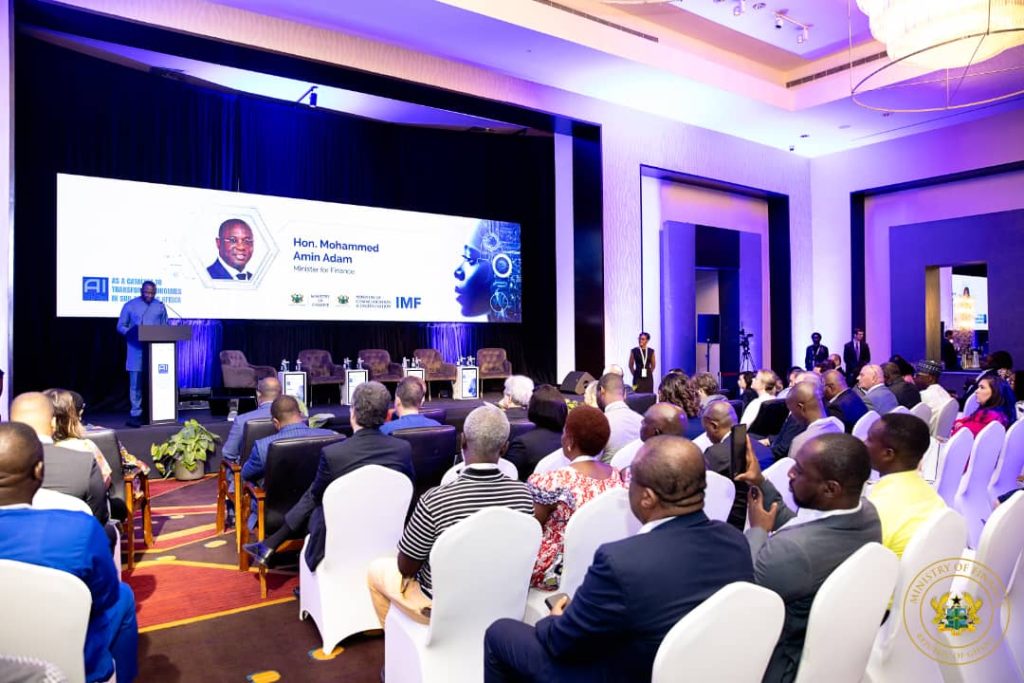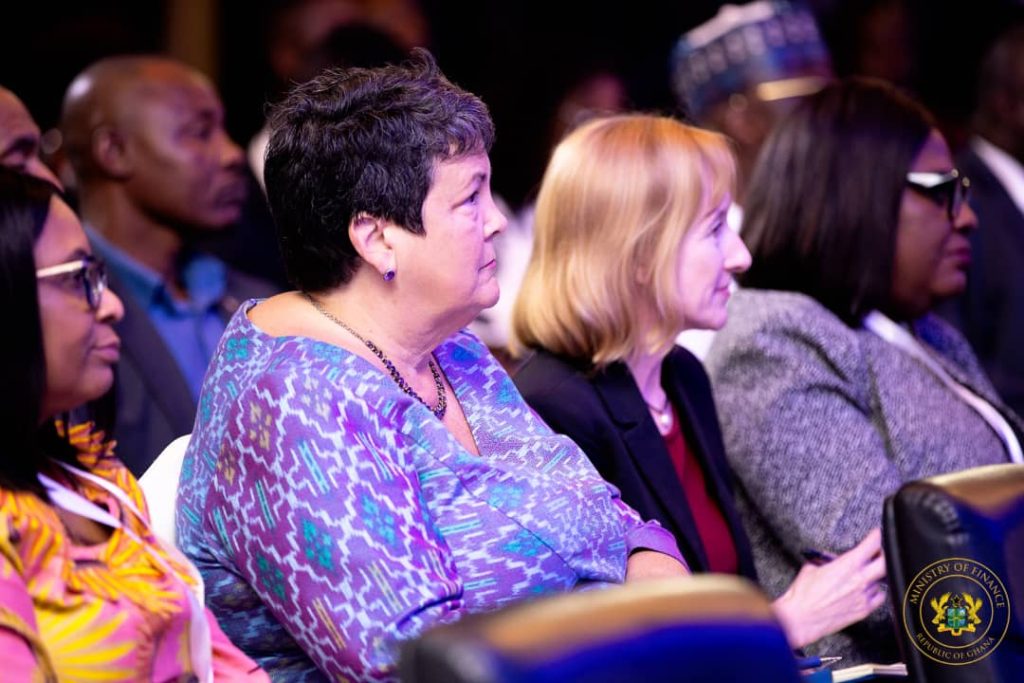By Francis Ntow
Accra, March 18, GNA – Ms Kristalina Georgieva, Managing Director, International Monetary Fund (IMF), says the adoption of Artificial Intelligence (AI) will be transformative to African economies.
Doing so, Ms Georgieva said, would solve the age-long low productivity and labour market issues faced by African countries.
She has, therefore, encouraged African governments to increase their readiness to take advantage of the numerous opportunities offered by AI, and build systems to minimise risks and ethical issues, and ensure inclusion in all aspects of human life.
Ms Georgieva said this at a conference jointly organised by the Ministry of Finance, Ministry of Communications and Digitalisation, and the IMF, on Monday, March 18, in Accra.
It was on the theme: “AI as a catalyst to transforming economies in Sub-Saharan Africa”.
“Artificial Intelligence is our best chance to overcome the long-term low productivity. When we think of what can lift productivity, by far, our best chance is in investing in green transition and in the adoption of AI,” she said.
“It (AI) can be the big bang that allows us to live longer, healthier, better educated, [and] more productive lives. We face, urgently, the necessity to embrace AI, and make the best out of it,” the IMF Managing Director said.

A study by the IMF has indicated that while some 60 per cent of jobs in advanced economies would be impacted by AI, in emerging markets, it is 40 per cent, and that of low-income countries would be 26 per cent.
Speaking to the figures, Ms Sh Georgieva said it was important for African economies to build more digital infrastructure, invest in human capital, adopt AI innovations that fit into entrepreneurship, and have a strong regulatory framework.
Dr Mohammed Amin Adam, Finance Minister, said AI was said to contribute up to US$15.7 trillion to the global economy by 2030, of which US$1.2 trillion could be generated in Africa.
That, he said would make AI one of the biggest economic opportunities available to the African Continent, leading to fundamental changes in the way people lived, worked, and related to one another thanks to data-driven algorithm.
To African governments, Mr Amin Adam said, “Quite frankly, there is no time to wait; given the exigencies of the moment, we cannot afford to miss out on the opportunities that AI present to make a significant leap toward achieving long-term economic sustainability and resilience.”
On the costs involved in embracing AI solutions, he said it would require some US$100 billion by 2030 to improve internet access and digital infrastructure, and US$1bn over the next five years in Science, Technology, Engineering and Mathematics (STEM) education to train 2.5 million more engineers.
The Minister stated that Ghana, and other African countries were looking to collaborate with development partners across the world to provide funding, technical and implementation support for AI projects and the development of national AI strategies tailored to Africa’s unique needs.
He encouraged governments, the private sector, development partners and academia, to continue to prioritise working together.
That Dr Amin Adam said would “ensure we unlock an independent, wealthy future for Africa where technology removes the obstacles that preclude our people, and indeed our Nations from realising their potential.”

Mad Ursula Owusu-Ekuful, Minister of Communications and Digitalisation, noted that Ghana had developed a digitised national identity card (Ghana card), digital addressing system, and extended fibre connectivity across the country.
She, however, said that there was the need to invest more to provide connectivity in Africa by building resilient systems through exploring a mix of digital connectivity options, including affordable satellite infrastructure.
On regulatory readiness, the Communications and Digitalisation Minister stated that Ghana had developed a draft AI policy and ethics strategy to leverage opportunities and reduce adverse effects.
GNA